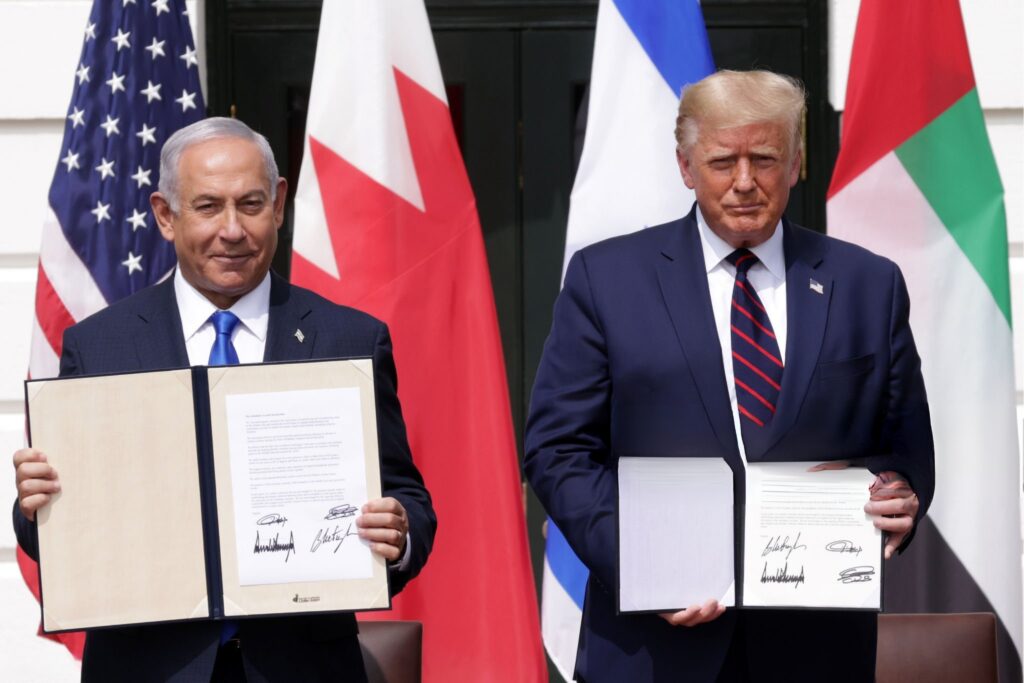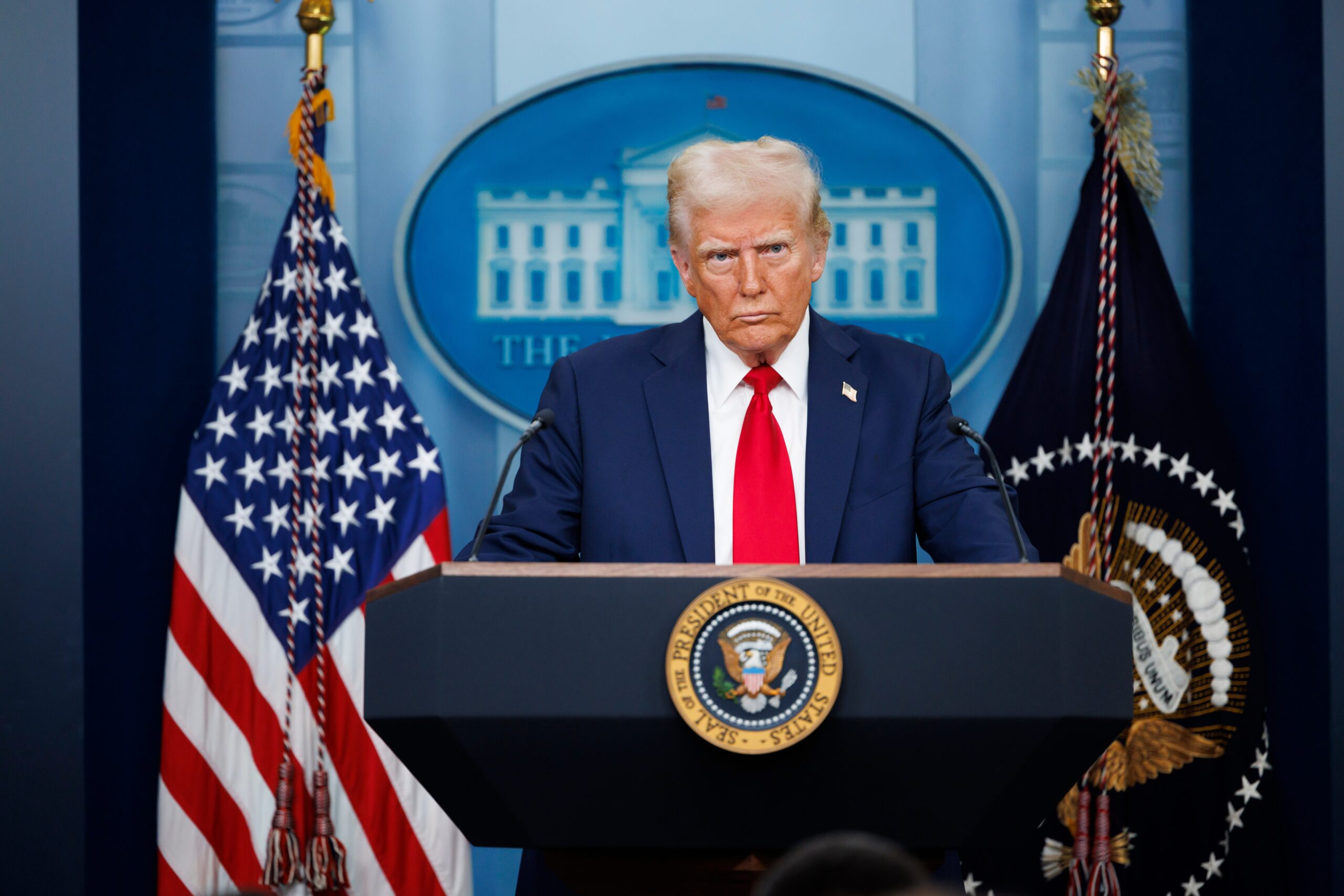Republican Congressman Praises President’s ‘Extraordinary Leadership’ in Ending 12-Day Middle East Conflict
Representative Buddy Carter of Georgia has formally nominated President Donald Trump for the Nobel Peace Prize, citing his instrumental role in brokering a ceasefire between Israel and Iran that ended what Trump dubbed the “12 Day War.” The nomination comes after Trump announced Monday that Iran and Israel had agreed to a ceasefire, bringing a swift conclusion to a conflict that threatened to engulf the region.
In his letter to the Nobel Peace Prize Committee, Carter declared that Trump played an “extraordinary and historic role” in ending “the armed conflict between Israel and Iran and preventing the world’s largest state sponsor of terrorism from obtaining the most lethal weapon on the planet.” The congressman emphasized that Trump’s influence was “instrumental in forging a swift agreement that many believed to be impossible.”
The latest escalation began when Israel launched preemptive strikes against Iran, citing intelligence that Tehran was dangerously close to obtaining nuclear weapons capability. The two nations subsequently traded rocket fire over several days, marking one of the most direct military confrontations between the longtime adversaries.
The conflict escalated significantly over the weekend when the United States launched airstrikes on three of Iran’s key nuclear facilities under Trump’s orders. Iran responded by attacking a U.S. air base in Qatar on Monday, though it provided advance notice to U.S. and Qatari officials, resulting in no casualties. Intelligence reports indicate that while the U.S. strikes caused damage to Iran’s nuclear facilities, they may not have completely destroyed Iran’s nuclear capabilities.
BREAKING: President Trump FORMALLY nominated for the Nobel Peace Prize. pic.twitter.com/3m4roMJpaL
— Ryan Fournier (@RyanAFournier) June 24, 2025
Trump’s Diplomatic Intervention
According to White House officials, Trump personally brokered the ceasefire deal with Israeli Prime Minister Benjamin Netanyahu, while other administration officials maintained contact with the Iranian government. The president’s direct involvement and decisive action drew praise from supporters who viewed his approach as validating his “peace through strength” philosophy.
Carter’s nomination letter highlighted Trump’s leadership during the crisis as exemplifying “the very ideals that the Nobel Peace Prize seeks to recognize: the pursuit of peace, the prevention of war, and the advancement of international harmony.” The Georgia Republican noted that in a region “plagued by historical animosity and political volatility, such a breakthrough demands both courage and clarity,” qualities he said Trump demonstrated throughout the crisis.
A Pattern of Peace-Making
This nomination represents the latest recognition of Trump’s diplomatic efforts, though the president has expressed frustration at not receiving the Nobel Prize despite what he considers significant achievements. Just last week, Trump wrote on Truth Social: “I won’t get a Nobel Peace Prize no matter what I do,” following his administration’s successful mediation of a peace deal between Rwanda and the Democratic Republic of Congo.
Trump has previously highlighted several diplomatic successes, including preventing conflicts between India and Pakistan, and between Serbia and Kosovo. He frequently references the Abraham Accords of 2020, in which his first administration brokered diplomatic relations between Israel and four Arab nations, as evidence of his peace-making capabilities.
The president’s frustration with the Nobel Committee has been evident, as he recently stated: “I should have gotten it four or five times… They won’t give me a Nobel Peace Prize because they only give it to liberals.”
International Recognition and Skepticism
Trump’s peace-making efforts have drawn both praise and criticism from international leaders. Pakistan’s government announced Friday that it would formally recommend Trump for next year’s Nobel Peace Prize, calling him a “genuine peacemaker” and praising his “decisive diplomatic intervention and pivotal leadership” during recent Pakistan-India tensions.

However, not all international nominations have remained steadfast. Oleksandr Merezhko, head of Ukraine’s parliamentary foreign committee, initially nominated Trump in November but withdrew his nomination, citing concerns about Trump’s approach to Russia sanctions and his response to strikes on Kyiv.
Should Trump receive the Nobel Peace Prize, he would join a select group of U.S. presidents who have received the honor. Only three sitting presidents have won the award: Republican Theodore Roosevelt in 1906 for brokering peace between Russia and Japan, Democrat Woodrow Wilson in 1919, and Barack Obama in 2009, who received the award less than nine months into his presidency.
Former President Jimmy Carter was honored in 2002 for “decades of untiring effort to find peaceful solutions to international conflicts,” while former Vice President Al Gore received the prize in 2007 for his climate change advocacy.
While the Trump-brokered ceasefire appears to be holding, the situation remains fragile. Both Israel and Iran have stated they will honor the ceasefire unless the other side breaks it first, after earlier trading accusations about truce violations. The delicate nature of the agreement underscores the diplomatic achievement of reaching any accord between these longtime adversaries.
According to the Nobel Prize website, 338 candidates have been nominated for the 2025 Nobel Peace Prize. Carter’s nomination of Trump adds to what supporters see as a compelling case for recognizing the president’s role in preventing a potentially catastrophic regional war while simultaneously degrading Iran’s nuclear capabilities.
The nomination comes as Carter, who is also running for Senate in Georgia, has introduced several bills supporting Trump’s agenda this year, including legislation to rename Greenland and facilitate the sale of a federal building named after former House Speaker Nancy Pelosi.
As the ceasefire continues to hold, Trump’s supporters view the successful conclusion of the 12-day war as validation of his approach to foreign policy and a strong argument for Nobel recognition of his peace-making efforts in one of the world’s most volatile regions.




